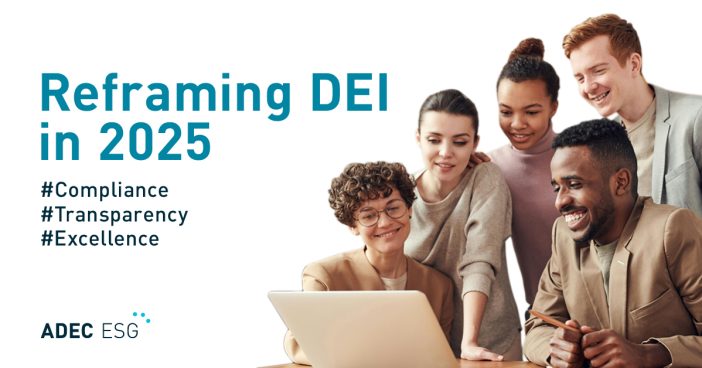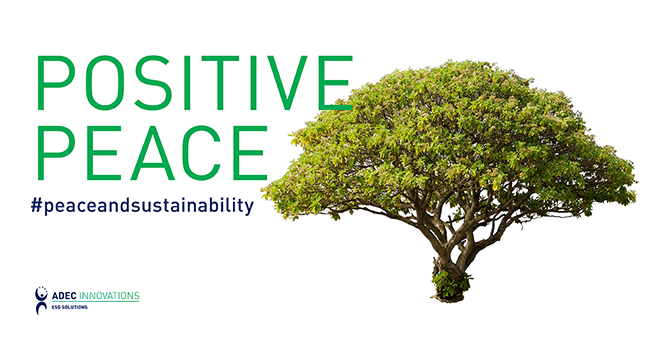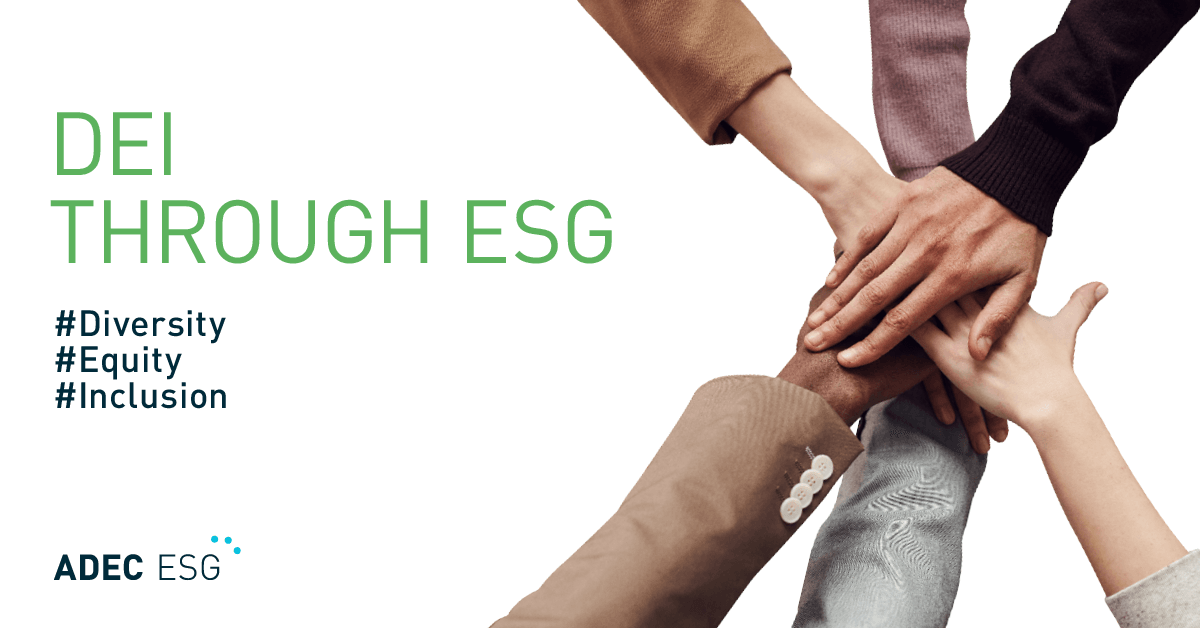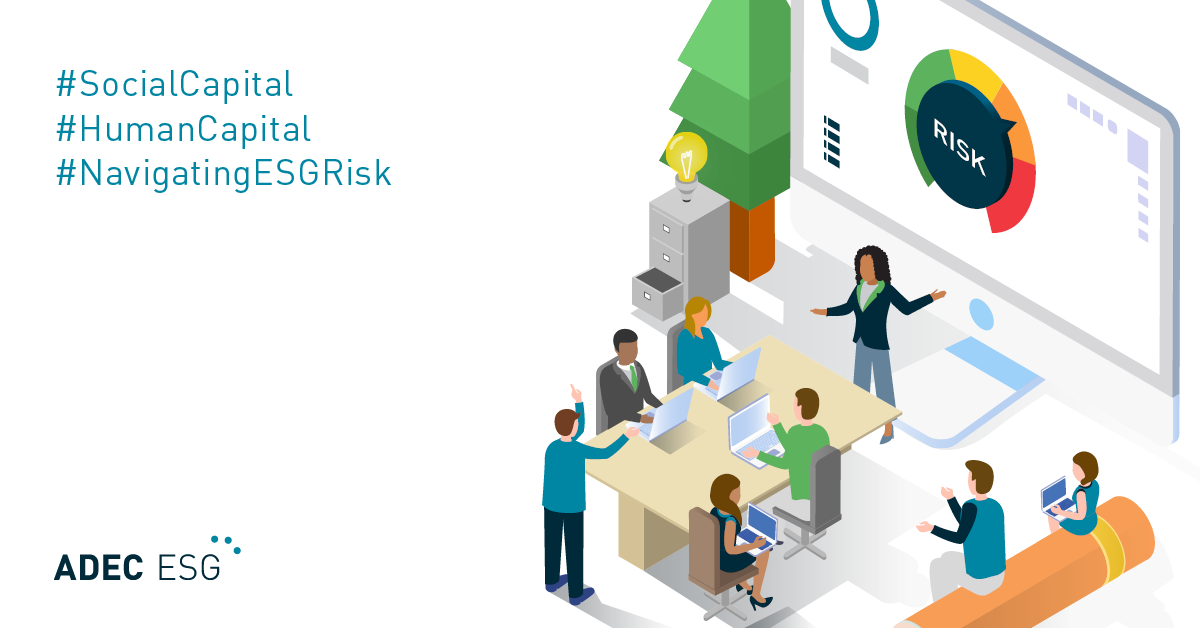In the first months of 2025, U.S. President Donald Trump’s executive orders rolled back diversity, equity, and inclusion (DEI) programs within federal agencies, with indirect impacts across the private sector. These orders have created challenges for businesses who are working to adapt. As a component of the “Social” pillar in ESG (environmental, social, and governance), DEI plays a vital role in how companies are evaluated on workplace equity, inclusion, and social responsibility. For this reason, for many organizations these challenges are both legal and directly impact ESG ratings, stakeholder trust, and long-term business resilience.
In this blog we explore DEI initiatives through a long-term business resilience lens, reviewing legal precedents, consumer attitudes, and how businesses may continue to adhere to their people-focused values and mitigate risk while maintaining legal and ethical compliance in an actively changing geopolitical environment.
The Business Balancing Act: Navigating DEI and Politics
At the core of the issue is the push for an approach to hiring and training that reflects President Trump’s executive orders and 2025 inaugural promise to “forge a society that is colorblind and merit-based.” While this language may appeal rhetorically to fairness, in practice it often disregards the structural barriers that Equal Opportunity (EEO) laws and civil rights protections were designed to address. DEI programs were developed to uphold and advance those laws by ensuring fair treatment and equal access. While executive orders may attempt to reframe these efforts, they do not override statutory protections already signed into statutory law.
For organizations that have made DEI a central part of their culture, this creates a dilemma: How can they stay aligned to their core values, while responding to this changing landscape?
A Brief History of DEI Initiatives
DEI programs have been evolving for decades. The foundation of workplace equality began in the 1960s, spurred by the Civil Rights Movement and key legislation like the Civil Rights Act of 1964. This landmark law prohibits discrimination based on race, color, religion, sex, or national origin, and has been pivotal in advancing civil rights and promoting equal opportunities in the workplace.
Since then, DEI programs have supported the goals of this legislation—from the affirmative action programs of the 1960s to the diversity initiatives of the 1990s, and finally evolving into the more comprehensive programs of today. While the terminology and programs themselves have adapted to reflect evolving social consciousness and opportunities for a more diverse and equitable workforce, the core principles of diversity, inclusion, and fairness have remained unchanged and apolitical.
Every generation currently in the workforce, from Baby Boomers to Gen Z, has worked alongside EEO laws and their evolving DEI programs. These initiatives have continuously shaped the workplace, with the goal of ensuring that opportunity isn’t limited by race, gender, or background. DEI’s long-standing role in the workforce reflects a commitment to building a more inclusive society, with fairness and equal opportunity foundational to long-term business success.
Legal Challenges and Judicial Responses
President Trump’s executive orders have sparked legal challenges, as the landscape around DEI initiatives continues to evolve. Key developments include:
- State-Level Response: Several states have filed lawsuits, arguing that the orders violate civil rights protections and undermine state-level diversity initiatives. A coalition of 19 state attorneys general is also challenging the orders, asserting that they unlawfully impede efforts to promote diversity.
- Civil Rights Groups Pushback: Civil rights organizations, including the NAACP and the ACLU, have filed lawsuits against the orders, citing violations of free speech and due process. Their opposition highlights the tension between the executive orders and ongoing non-partisan efforts to promote inclusion.
- Temporary Injunctions: Federal courts have issued temporary injunctions blocking certain provisions of the executive orders, with concerns about vagueness and potential infringement on free speech.
These ongoing legal challenges have created uncertainty, leaving businesses unsure how to align their internal commitments to equal opportunity with shifting political pressures. For companies evaluated by global ESG ratings, pulling back on DEI may also pose reputational or performance risks, especially within the Social pillar, where transparency and consistency are key to maintaining strong ESG performance and scores. This is particularly true for consumer-facing brands.
Consumer Support for DEI Initiatives
While the legal challenges continue, consumers, especially younger generations, are making their expectations clear: they care about company values, and they’re paying attention. According to a 2024 survey, 62% of Gen Z and 59% of Millennials are deeply concerned about social issues, including diversity and inclusion.
Support for DEI is also tied to purchasing power. A 2025 survey found that 75% of consumers are more likely to support brands that make a clear commitment to diversity and inclusion, while 67% said they would stop purchasing from companies that backtrack on DEI efforts. This shows that, for many consumers, DEI is a reflection of a company’s authentic and long-term commitment.
The backlash Target faced after rolling back its DEI initiatives in early 2025 highlights potential impacts of making impulsive shifts in corporate strategy. The company experienced a 40-day boycott, resulting in a $12.4 billion loss in market value, with their stock price plummeting $27.27 per share and early 2025 shopper visits down by 5 million. In contrast, Costco, which remained publicly committed to DEI, saw an increase of 7.7 million shopper visits in early 2025 and a survey found that 68% of Americans support Costco’s DEI focus. This juxtaposition is a clear indication of the value consumers place on genuine DEI commitment.
For many consumers, this isn’t just about meeting expectations—it’s about trust. Businesses that step back from DEI under pressure risk eroding the loyalty they’ve built based on that value. In today’s environment, companies must consider not just whether to maintain these commitments, but how to deepen them in ways that build resilience and long-term stakeholder support.
Five Tips for Maintaining Commitment
What can businesses do in light of these complex challenges?
The first step is simple: stay true to your core values. While legal requirements may evolve, the principles behind DEI are longstanding and legally grounded, and largely supported by the public. These commitments are embedded in federal law, including the Civil Rights Act, Equal Pay Act, Americans with Disabilities Act, Age Discrimination in Employment Act, and Lilly Ledbetter Fair Pay Act. In addition, research has shown that diverse and inclusive companies benefit from higher revenue growth and employee retention rates. Grounding your strategy in these laws reinforces your organization’s legitimacy, mitigates against compliance risks, and signals a clear, values-driven stance to employees and consumers.
Here are a few ways companies can stay the course on equal opportunity while keeping pace with ongoing political shifts.
1. Emphasize inclusive practices
Efforts to create inclusive workplaces should be framed as part of your organization’s ongoing commitment to fairness, not politics. After all, the point of DEI has always been simple: making sure the most qualified person gets the job, based on skillset, talent, and experience. Businesses should clearly show how their hiring, promotion, and development practices are rooted in equal opportunity and merit. Emphasizing lawful, inclusive practices that avoid the appearance of quotas or mandates can help ensure these initiatives are understood for what they are: smart, strategic tools for building strong, capable teams that will help your organization grow and thrive.
2. Ensure legal compliance with transparency and clear communication
Businesses must remain proactive and informed as the environment continues to shift. That means regularly reviewing policies and documentation, consulting legal experts, and aligning your workplace practices with key laws like Title VII, the Equal Pay Act, and others whose intents are to protect against bias and discrimination. Reinforcing your alignment with well-established legal protections isn’t just a compliance exercise—it’s a trust-building tool with both employees and stakeholders and a step forward in reducing legal risk.
3. Communicate DEI efforts transparently with employees and stakeholders
Transparent and consistent communication builds credibility. Employees and stakeholders should hear what your company does to promote fairness and also why you do it. That includes:
- Authenticity and Intentionality: Align messaging with your core values and ensure it reflects real, measurable progress—such as improvements in workplace inclusion, retention, or equality aligned with your broader workforce strategy.
- Inclusive Language: Use deliberate and respectful language that resonates across audiences. Employee engagement is deeply affected by employees’ sense of belonging, with research showing that 91% of employees who feel they belong at a company also reporting better engagement—and increased performance and productivity as a result.
- Feedback Channels: Create space for dialogue and input, so your efforts evolve in meaningful, responsive ways.
4. Amplify community engagement and external partnerships
Strengthen your commitment to DEI by partnering with organizations that reflect your values—whether that’s local nonprofits, civil rights groups, veterans’ networks, or accessibility advocates. These relationships reflect how your values extend beyond your operations and contribute to broader positive change. They also work to bolster brand perception and provide opportunities for positive media coverage.
5. Lead by example and prepare for future advocacy
While the current political landscape may limit direct advocacy, programs rooted in equal opportunity are backed by legal precedent, reinforced by consumer support, and woven into modern workforce expectations. Businesses should use this time to strengthen their internal commitments and prepare to lead where the environment allows.
This includes:
- Embedding Inclusive Excellence into Long-Term Strategy: Integrate equal opportunity goals into workforce planning, leadership development, and governance.
- Staying Informed: Keep a close watch on state and federal developments to stay agile and ready to advocate when the time is right.
By taking a proactive, legally grounded, values-driven approach to equality and opportunity, businesses can build resilience— from both operational and reputational perspectives, with both internal and external stakeholders—while staying true to their mission.
Commit to Progress
Navigating the shifting tides around DEI is no small feat. For many businesses, it feels like walking a tightrope—balancing long-held commitments to inclusion and equal opportunity, with making sense of executive orders and responding to what consumers expect in 2025. In fact, a recent report found that one in three companies that rolled back DEI initiatives are reinstating them, and one in seven business leaders view scaling back DEI as a mistake. If history tells us anything, it’s that progress tends to stick when it’s built on clear, consistent values.
DEI has always been about building better workplaces—creating environments where people are hired for their skills, not sidelined because of who they are. Today, those values still resonate with employees, consumers, and the communities across the globe. Because DEI initiatives are also a core component of the “Social” pillar in ESG and sustainability, focusing on the long-term impacts of those initiatives supports the achievement of meaningful goals—goals that often carry significant weight among a company’s many stakeholders.
While there’s no perfect roadmap, there is a clear throughline: stay steady, stay transparent, and keep showing up. Not because you’re told to, but because it’s what drives better business, stronger teams, and meaningful work.
ADEC ESG is a leader in sustainability solutions, supporting global organizations as they work to integrate environmental, social, and governance topics into successful and impactful corporate strategy. Talk to us today to learn more about how we can help you create meaningful sustainability programs that make a positive social impact and foster an engaged and resilient workforce.
The views and opinions expressed in this blog are those of the author and do not necessarily reflect the official policy or position of ADEC ESG. This blog provides general information and does not constitute the rendering of legal, economic, business, or other professional services or advice. Consult with your advisors regarding the applicability of this content to your specific circumstances.




